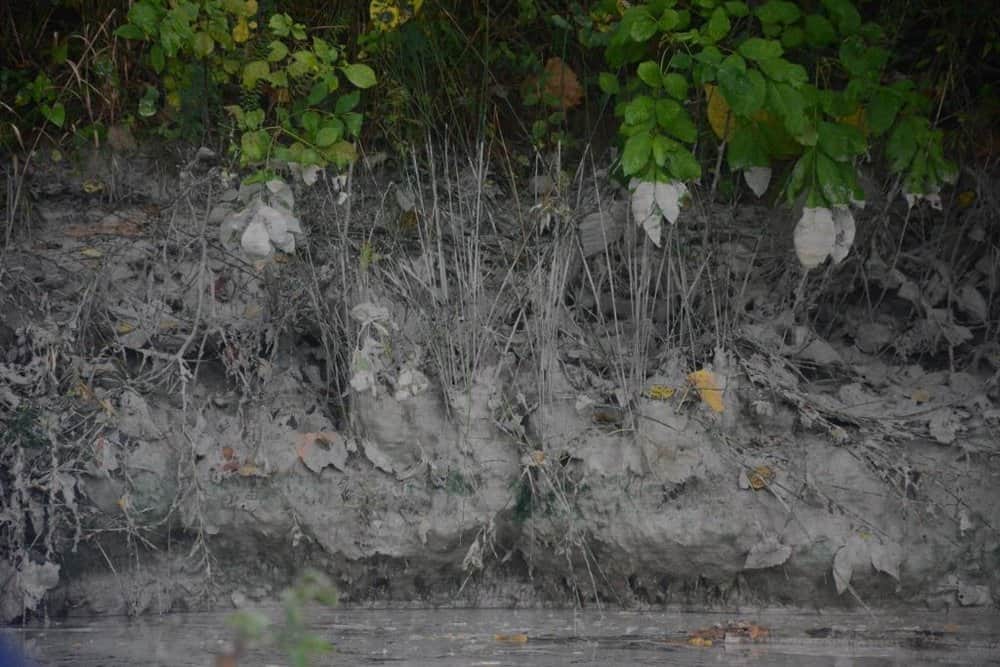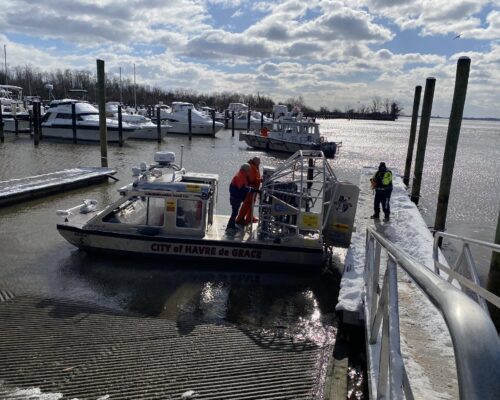Virginia Governor Ralph Northam and bipartisan state lawmakers have agreed to remove more than 27 million cubic yards of coal ash from the watershed.
Coal ash, which is essentially what remains after coal is burned in coal-fired power plants, contains a variety of hazardous contaminants. If stored or disposed of improperly, it can threaten the health of nearby species and ecosystems.
The agreement requires that coal ash be removed from unlined storage ponds in Chesapeake City and Chesterfield, Prince William, and Fluvanna counties. While Dominion Power no longer burns coal for electricity at its Chesapeake, Possum Point, or Bremo stations, coal ash remains there in ponds. The utility’s station near Richmond continues to burn coal.
A coal ash pond at Dominion’s Chesterfield Power Station and the neighboring Dutch Gap Conservation Area and James River. Photo: James River AssociationEnvironmental advocacy organization Clean Water Action says that storing coal ash in ponds is dangerous to surrounding bodies of water: “Because of a lack of safeguards, storage ponds are nothing more than unlined earthen pits situated along major waterways such as the Potomac and James River.”
The legislation includes stipulations for removal costs and the impacts on communities close to the pond sites as the work is carried out. It also calls for at least a quarter of the ash to be “recycled for beneficial use, with the remainder disposed of safely in modern, lined landfills,” as described by the Office of the Governor. Coal ash can be recycled into products like wallboard and concrete, according to the Environmental Protection Agency (EPA).
Governor Northam says the agreement “represents a key breakthrough in preserving our natural resources and protecting water quality. Our effort will ensure we are disposing of coal ash in the safest, most environmentally-responsible way.”

In a statement, Chesapeake Bay Foundation Virginia Executive Director Rebecca Tomazin praised the agreement as a significant step in the effort to stop coal ash from endangering Virginians and their environment. “This agreement represents remarkable progress towards cleaning up toxic coal ash that for years has threatened public health and Virginia’s waterways,” she said. “Moving coal ash out of the unlined pits near our waterways is the only way to ensure hazardous metals stay out of Virginia’s major rivers and the Chesapeake Bay.”
–Laura Adams Boycourt



